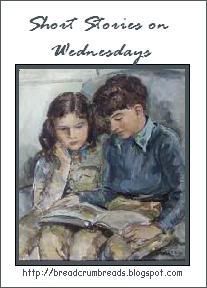I started 2011 with just about 2 posts on my blog and no idea how this whole blogging thing worked. Over the course of this year I’ve read a lot of books and read about a lot of books on the hundreds of amazing blogs I follow. The book blogging community has been such a nurturing and friendly place for a bookworm like me. Thank you all for reading my blog, following, commenting, appreciating and disagreeing. It’s been such fun so far and I’m certain it’s going to be even better in the New Year.
While I didn’t do any challenges in 2011, I did enjoy being a part of the odd blog hop or taking part in an event or meme as and when my schedule allowed. In 2012, I intend to get my reading and blogging a bit more organised. That is the plan at any rate; we’ll see how it actually plays out :)
There are so many great challenges and memes happening out there, it’s tempting to take them all on but I’ve tried to keep things (more or less) sensible. So here are all the challenges, memes and events that I plan to do in 2012.
A Classics Challenge hosted by November’s Autumn.
A Classics Challenge hosted by November’s Autumn.
The goal is to read 7 classics in 2012 with no more than 3 being re-reads. A very interesting spin on the challenge is a blog hop which will happen on the 4th of each month where participants can answer a prompt regarding the classic they are reading. Sounds like fun. I will do the blog hop as often as I can and also do book reviews although that isn't a requirement. The classics I plan to read are:
- Animal Farm by George Orwell
- Of Mice and Men by John Steinbeck
- Midsummer Night’s Dream by William Shakespeare
- Daddy Long Legs by Jean Webster
- Mrs Dalloway by Virginia Woolf
- A Connecticut Yankee in King Arthur's Court by Mark Twain
- The House of Seven Gables by Nathaniel Hawthorne
I've read most of Shakespeare’s great tragedies and histories but sadly have had very little acquaintance with his comedies. I hope to remedy that by reading A Midsummer Night’s Dream. I also want to re-read some of his sonnets that I read ages ago and maybe some that I haven’t read yet. You can also read any works about Shakespeare so maybe I’ll check out something in that vein.
Greek Classics Challenge 2012 hosted by Howling Frog Books.
Greek Classics Challenge 2012 hosted by Howling Frog Books.
I've already posted about this here but I thought it bears repeating. I've modestly chosen the challenge level Sophocles ie. 1-4 books. So far I've acquired Antigone by Sophocles and Republic by Plato. I’m going to try doing 1 or 2 more if time isn't my enemy.
Agatha Christie Reading Challenge
Agatha Christie Reading Challenge

The idea is to read a Christie a month and link up here. I have been doing this on and off in 2011, I hope to be more regular in 2012
Short stories on Wednesday hosted by Risa at Breadcrumb Reads
Short stories on Wednesday hosted by Risa at Breadcrumb Reads
This has been a great reason to read more short stories and has led to me discovering so many new authors (and some new blogs too). It’s going to be even more exciting in 2012 in its new and improved version. I’ll be joining in as often as I can.
I also want to try and read some Irish stories for Irish Short Story Week over at Mel U’s The Reading Life. I have no clue where to even begin though. Suggestions will be much appreciated.
So, that’s the lot I think. Reading back over this list is making me sweat a bit right now because I have no idea how I’m going to do all this with a house move coming up, weddings in the family and several trips planned in 2012. But I’m an old hand at over-committing so I won’t be deterred. My only hope is that I’m left with enough space and time to read books that I feel like reading even if they aren't a part of any of the challenges.
Now all that’s left for me to do is to wish you a very Merry Christmas and a very Happy New Year. See you in a bright and sparkling 2012.





















